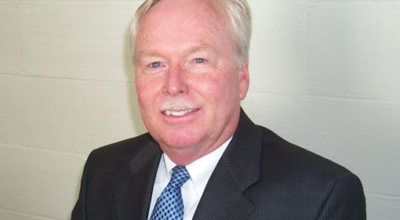Retired general sees hope in future Iraqi Generations
Published 8:34 am Saturday, June 28, 2014
In my home hangs a photograph of a rather large and deep hole on the side of an asphalt road. It is the aftermath of an IED (Improvised Explosive Device) — or in more simple terms, a homemade bomb — that went off just as the Humvee in which I was riding passed over it.
The date was Oct. 13, 2005, and I was in Iraq, embedded with the men and women of Georgia’s 48th Brigade Combat Team. On this day, I was with a convoy in an area south of Baghdad looking for IEDs. Needless to say, we found one.
I was told later that had our vehicle been a few seconds slower or the bad guys a tad faster, we would not be having this conversation today. I would be in heaven or Athens or some place without air-conditioning.
Going through that experience was a seminal event in my life. To the 4,600 citizen-soldiers of Georgia’s 48th BCT, it was just another day’s dangerous work. They lost 26 of their colleagues to IEDs while deployed in Iraq.
Commanding the 48th was Brig. Gen. Stewart Rodeheaver, of Forsyth, Georgia, a Great American and one of the finest leaders I have been privileged to know. Gen. Rodeheaver retired in 2010 and moved to Eatonton where he serves as president of a high-tech company called ViziTech USA, which provides state-of-the-art training in education and other fields.
I called him at home last week to see what he thought of the current events taking place in Iraq. I got hold of him just after he had finished cutting the grass. I didn’t know generals cut their own grass. I know for a fact that modest and much-beloved columnists don’t.
Rodeheaver seems equal parts proud of what his troops accomplished during their time in Iraq and frustrated to see much of their hard work fall apart because of the on-going violence between the Shiites and the Sunnis.
“We thought we were helping them understand the advantages of working together,” he said, “and here we have the ruling power in the Iraqi government leaving out half the population. It is very disappointing.”
Somebody should have listened to him long before now. In an appearance before the Atlanta Press Club in 2006 after returning from Iraq, Gen. Rodeheaver warned about the need for inclusion. “You can’t build communities by leaving a significant amount of people out of the process,” he said. “If the Shia want to build a community in a certain way and they don’t consult the Sunnis, they build enemies.” That has come to pass.
The 48th BCT fought terrorists, stifling heat and skeptics while at the same time helping rebuild a country reeling from the tyranny of madman dictator, Saddam Hussein. Back home in Georgia, they were carpenters, police officers, medics, mechanics and the like. In Iraq, they used their skills to help the locals build and maintain power plants, water treatment facilities, roads and bridges, schools and medical clinics.
“We contributed to the welfare of families by providing them with schools and clinics and infrastructure. We tried to show young people that there is a better way of life than trying to kill each other,” the general says.
It is for that reason that Rodeheaver feels confident that their efforts will pay off eventually, if not in the near term.
“The current generation is lost,” he says flatly. “They hate each other and always will.”
He predicts, however, that within two generations positive changes will come to Iraq.
“Think of the attitudinal changes that have occurred in our own society in two generations,” he says.
Good point.
Was it worth it, I asked? “For most of us who were there” Rodeheaver says, “we would say ‘yes.’ We began a process that I truly believe will change the next generation in Iraq. And at home, Americans rediscovered their patriotism and pride after the terrorist attacks.”
What is going on in Iraq seems inevitable to most of us — fanatics fighting fanatics. It is hard to see that ever changing. But Gen. Stewart Rodeheaver has faith that one day it will. It is just going to take a new generation or two of Iraqis to say, “Enough is enough.” Then the good works of Georgia’s 48th Brigade Combat Team will not have been in vain. I am privileged I got to see those good works up-close and personal. As the photograph on my wall reminds me, it was almost too up-close for comfort.




